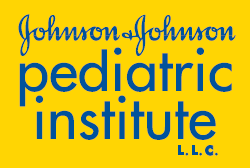Remember, everyday moments are rich bonding and learning opportunities. Enjoy the magic of these moments with your child.

Johnson & Johnson Pediatric Institute, L.L.C., is a company solely
dedicated to improving maternal and children’s healthcare through the advancement of continued learning and research in pediatrics, child development, parenting and maternity care. Through partnerships with leading healthcare professionals, developmental specialists and international organizations, Johnson & Johnson Pediatric Institute, L.L.C., identifies, develops and implements initiatives and programs that help shape the future of children’s health around the world.

ZERO TO THREE is a national nonprofit organization of renowned pediatricians, educators, researchers, and other child development experts who specialize in the first years of life.
Although there were times during your baby’s first year when the days (and nights) seemed endless—3 a.m. feedings, late afternoon cranky sessions, that first tooth breaking through—right now things probably feel a little calmer in some ways, and more demanding in others. This seems to be true for all stages of development; while some things get easier, there are always new challenges. Your child has made the transformation from the tiny stranger who came home with you from the hospital to a self-confident, opinionated person who takes up more space than any two adults combined. As you set about celebrating her first birthday, you find yourself wondering how it all happened so fast. Don’t be surprised by a rush of emotions. You have probably just been through the most emotional and intense year of your adult life!
One-year-olds have a remarkable sense of independence that comes hand-in-hand with their new ability to do things for themselves. But as much as they enjoy their independence, they also take great pleasure in running back into your arms. They love to be cuddled and carried and babied… as long as they’re the ones who decide when to be a “big girl” and when to be “a baby.” While this can drive parents crazy (“Is she a baby or a teenager?”) what your child needs to know is that whatever she chooses to be in any given moment, you’ll be there for her. In fact, if you respond to her need to be “babied,” she’ll eventually choose the “big girl” role over the baby.
